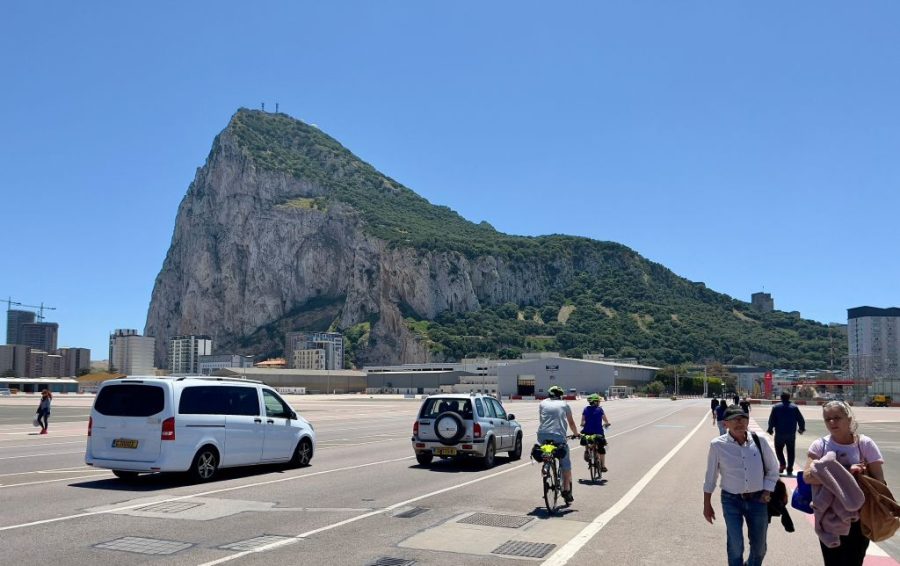For years, the UK, Spain, Gibraltar and the European Union have been negotiating, on and off, to resolve the complex issue of Gibraltar’s post-Brexit land border with Spain. Now, ahead of next week’s meeting in London when Keir Starmer welcomes EU leaders to discuss a ‘reset’ in UK-EU relations, Spain’s Foreign Minister, José Manuel Albares, has brought ‘the Gibraltar issue’ firmly back into the spotlight.
Referring to the planned reset, which covers a wide range of issues including defence and security, fishing and British exports, Albares told the BBC’s Newsnight programme, ‘There are many, many things we need to talk [about], Gibraltar included.’ Emphasising that the relationship between the UK and the EU must be ‘comprehensive’ and ‘global’, he added: ‘We have to resolve the Gibraltar issue in order to have a full EU-UK relationship.’
Gibraltar has now been British longer than it was Spanish
There are signs that agreement on ‘the Gibraltar issue’ may, finally, be imminent. Not for the first time Gibraltar’s chief minister, Fabian Picardo, has expressed optimism: ‘We’re 99 per cent of the way there… we’re within kissing distance.’ The anticipated plan reportedly involves Gibraltar becoming an associate member of the EU’s passport-free Schengen zone, allowing 15,000 workers from one of Spain’s poorest regions to enter Gibraltar every day, and Gibraltarians to regain the freedom of movement that ‘we used to enjoy as European citizens’. In the 2016 referendum, 96 per cent of Gibraltarians, who rely on imports of food, medicine and other supplies from Spain, voted to remain in the EU.
Under the 1713 Treaty of Utrecht, Spain ceded sovereignty over Gibraltar to Britain ‘in perpetuity’. Since it wasn’t even part of the Crown of Castile until 1462, Gibraltar has now been British longer than it was Spanish. A spokesman for the Foreign, Commonwealth and Development Office said: ‘We have been clear that we will only agree a deal that maintains British sovereignty over Gibraltar and has the full backing of Gibraltar’s chief minister, Fabian Picardo.’ The chief minister has repeatedly emphasised the Rock’s ‘sacrosanct’ British sovereignty.
However, any such deal will provoke fierce opposition from Vox, the most right-wing of Spain’s mainstream parties. Vox wants to end British occupancy of what it considers ‘Spanish soil’ and has already accused Spain’s socialist government of ‘cowardice’ for ‘not lifting a finger’ to seize what it regards as the golden opportunity offered by Brexit to recover Gibraltar.
Vox’s unwavering determination to recover sovereignty resonates with many Spaniards for whom Gibraltar, often described as ‘the stone in Spain’s shoe’, is a constant source of irritation. Many like to recall how in 2016, Javier Ortega, a senior Vox official, swam three kilometres across open sea from the Spanish town of La Línea to Gibraltar, where he rendezvoused with supporters on a secluded beach, scaled the steep rocky slopes, and fixed an enormous Spanish flag high above ‘the colony’. With Gibraltar’s security forces closing in, Ortega escaped arrest by running back down the hillside, plunging into the sea again and swimming back to Spain.
Nor did Vox’s manifesto for Spain’s 2023 general election leave much room for doubt. It promised to
Dismantle the networks of piracy, drug trafficking, smuggling and money laundering that emanate from Gibraltar and apply all the international pressure necessary to recover the occupied territory.
It may not be long before Vox gets an opportunity to act on those words. Although Spain’s next general election isn’t due until 2027 and socialist Prime Minister Pedro Sánchez has repeatedly vowed to serve the full term, his fragile minority coalition government, mired in multiple corruption scandals, struggles to secure parliamentary support for routine legislation. There is widespread speculation that a general election will be held sooner – indeed Spain’s right-wing opposition seem to think that it could come as soon as this autumn.
Whenever the election takes place, there’s no possibility of Vox winning outright. The party does, however, stand an excellent chance of becoming an influential junior partner in a coalition government led by the Partido Popular, the main right-wing party. With the Partido Popular almost certainly depending on its support to govern, Vox would be well placed to make demands – recovering Gibraltar might be high on the list.
There seems no way, however, of reconciling Vox’s demands with the wishes of an overwhelming majority of the 34,000 Gibraltarians: they want to remain British. Regardless, then, of the outcome of next week’s discussions in London, if, as seems likely, Vox forms part of the next Spanish government, it will soon become clear that ‘the Gibraltar issue’ is far from ‘resolved’.







Comments